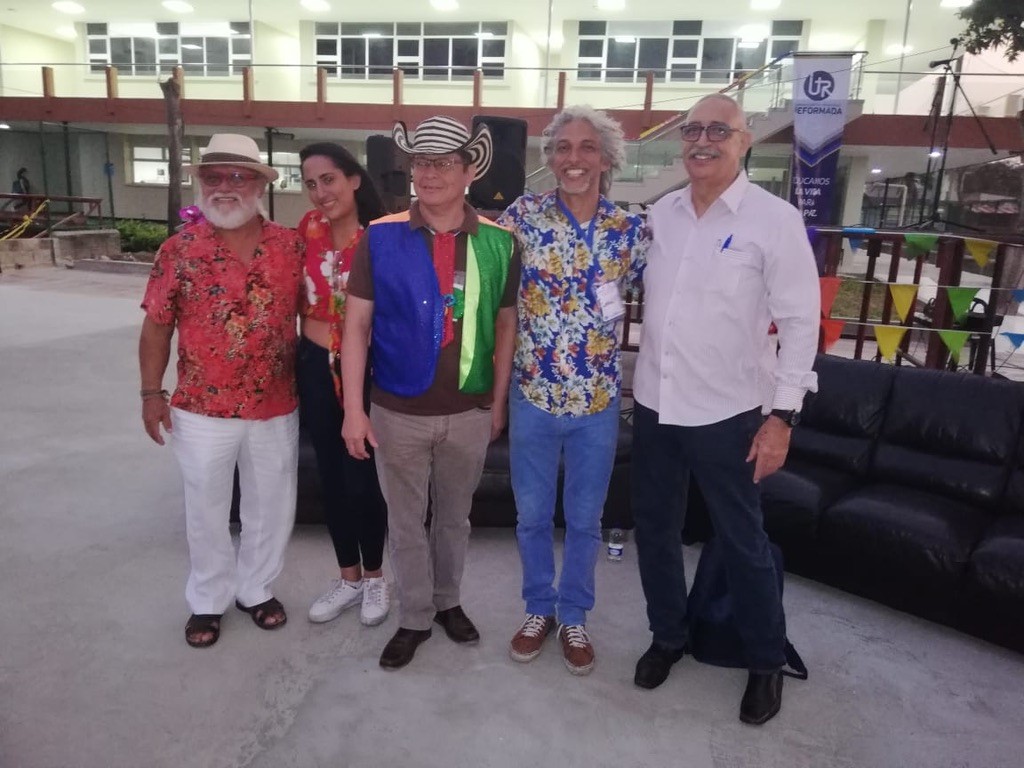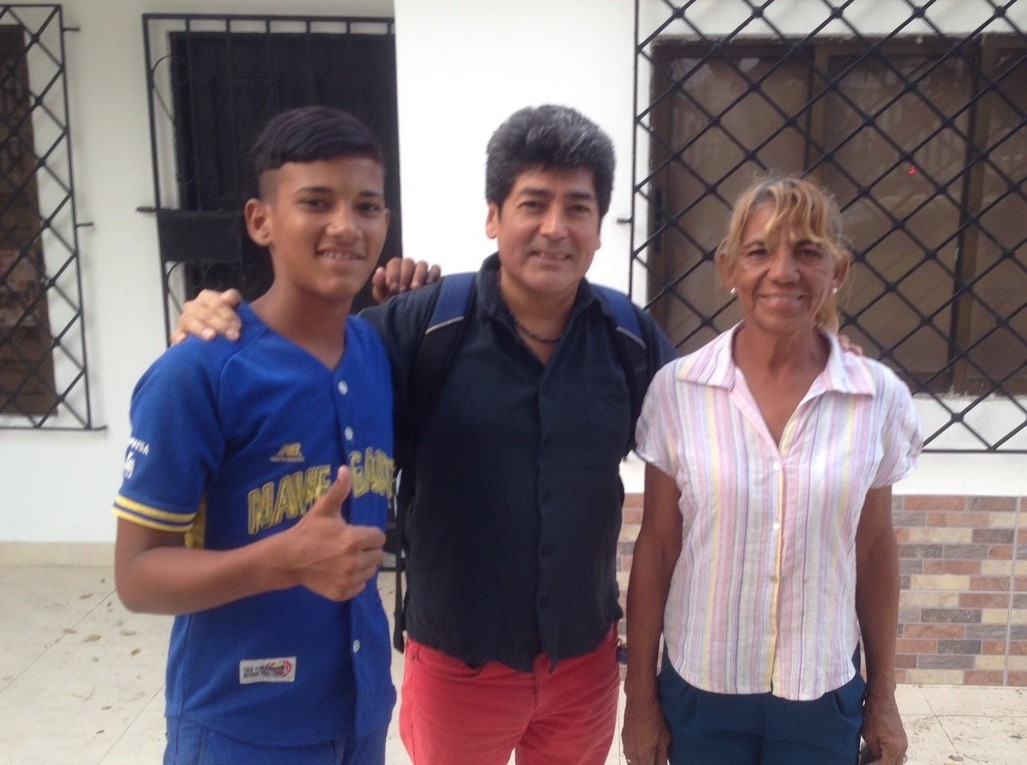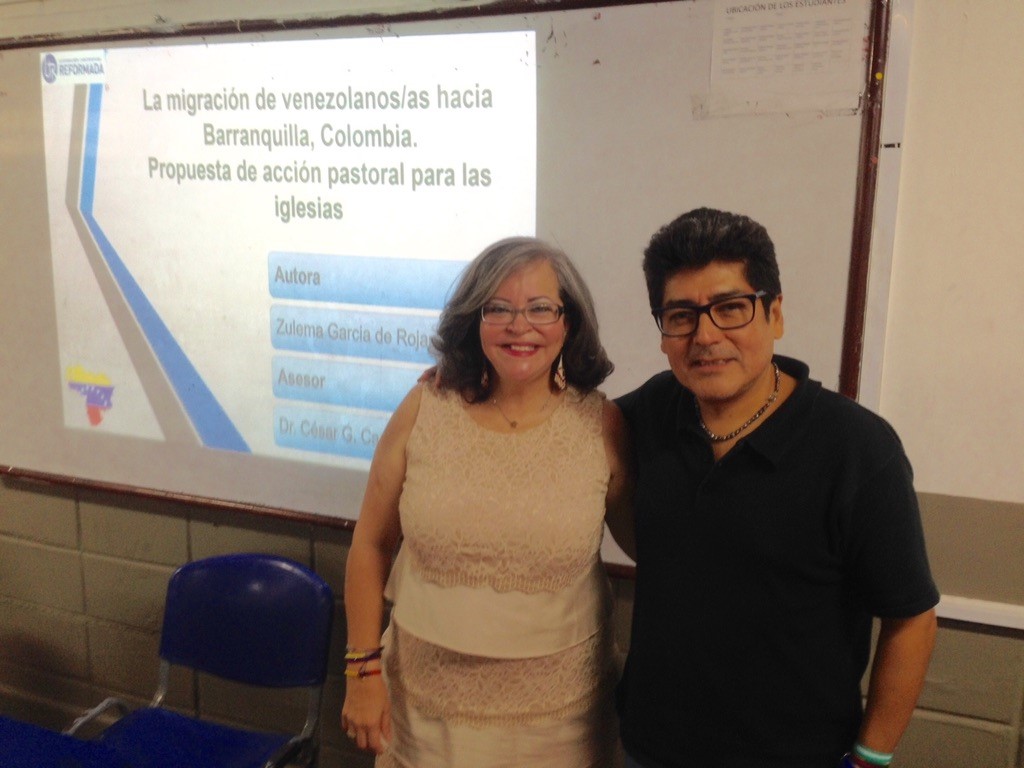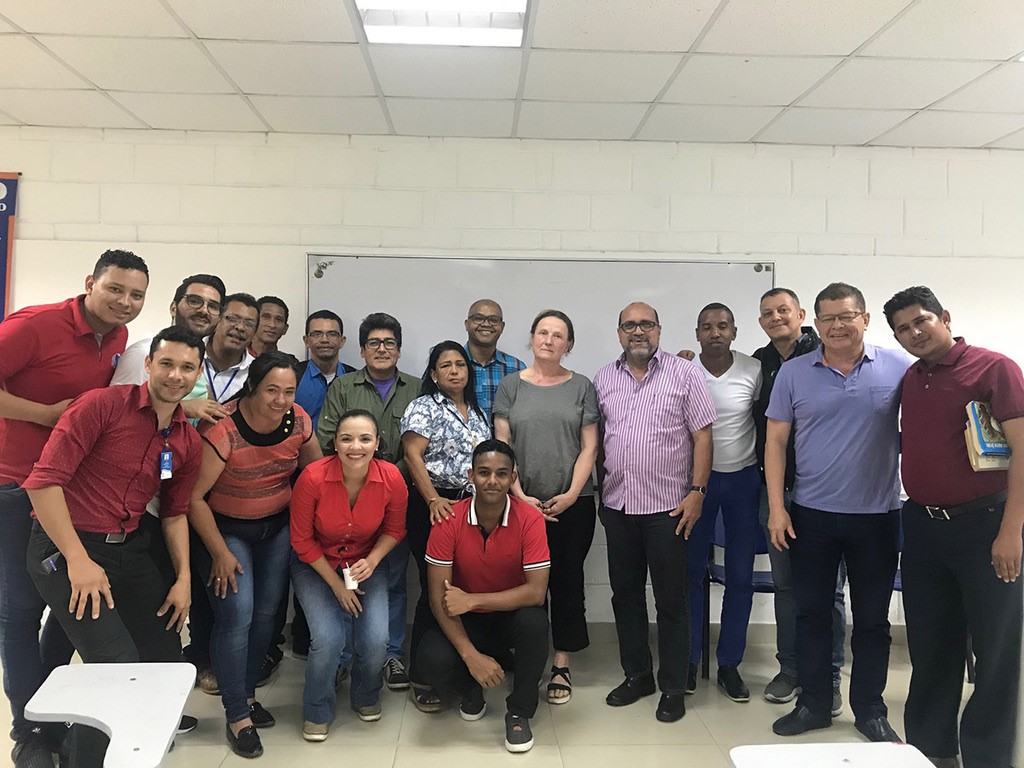A Letter from Cesar Carhuachin, serving in Colombia
April 2019
Write to César Carhuachín
Individuals: Give online to E200425 for César Carhuachín’s sending and support
Congregations: Give to D507559 for César Carhuachín’s sending and support
Churches are asked to send donations through your congregation’s normal receiving site (this is usually your presbytery)
Dear faithful praying partners and financial supporters of God’s mission in Colombia:
Greetings from Barranquilla, Colombia!
The weather on the Colombian coast has been wonderful: windy and 85-88 degrees during the day, and 79-81 in the evening. It does not rain at this time of the year. But in the coming weeks, the temperatures will rise.
Barranquilla is resting a bit after Carnival, a big celebration of tradition, multiculturalism and many types of music. The official celebration days were March 2-5, although pre-Carnival celebrations began a month earlier. Christians here are divided on celebrating Carnival for four reasons: a) the scene is often quite chaotic, with people throwing talcum powder and foam at each other; b) there are a lot of people squeezing each other; c) people drink beer, rum and whisky; and d) the parades include an LGTBQ community parade. While some consider Carnival sinful because of the alcohol consumption and LGTBQ parade in particular, others participate without moral discussion. The truth of the matter is that the Carnival of Barranquilla is not just a cultural celebration, but a big business with well-known Latino singers. The city receives thousands and thousands of foreign and national tourists.
Presbyterians here are divided on Carnival. Our school sponsored a conversation table with people involved in the Carnival of Barranquilla to discuss “A Flower Battle for Peace,” a parade symbolizing peace during which people carry flowers. The flower parade was established in 1903 after 1,000 days of civil war in Colombia (1899-1902). The conversation table reflected on how Carnival works as a vehicle to channel social violence. The discussion was very useful in helping people understand the social function of Carnival and why some Presbyterian congregations don’t see it as sinful.
Unfortunately, Colombia is still struggling with the Peace Agreements signed between the FARC (Colombian Revolutionary Armed Forces) and the government more than two years ago. The political reality is that the current Colombian government doesn’t like the Peace Agreements and is not working to implement them. Sadly, the status of the Peace Agreement is uncertain at this time. Our partner, the Presbyterian Church of Colombia, is still praying and working with other faith communities and non-profit organizations for peace in the country. I want to invite you to continue with your prayers and support for peace in Colombia.
Another issue here has been the large influx of Venezuelan immigrants. They are fleeing Venezuela for a number of reasons: a) the inefficiency of the Venezuelan government, b) U.S. sanctions on Venezuela, c) Venezuelans selling their products in Colombian border cities because of the lack of money in Venezuela, and d) Venezuela is suffering from an economic depression. As a border country, Colombia has received the largest number of Venezuelan immigrants in the region. Barranquilla is the largest Colombian city near the northern Venezuelan border — this is why we are receiving more immigrants than other Colombian cities. According the Office of Colombian Migration, there are about one million Venezuelans in Colombia, but the actual number is likely much higher. It is possible that in Barranquilla alone there are nearly 500,000 Venezuelan immigrants.In serving here in Barranquilla for the last six years, I have seen a significant increase in Venezuelan immigrants since 2016. They work hard and send money to their country. I live two blocks from the Reformed University, and between my apartment and the school there are about 10-12 young Venezuelan brothers and sisters who work in the streets between 9 a.m. and 7 p.m. daily cleaning car windows. Their goal is to make about 25,000 Colombian pesos per day (around 8 U.S. dollars). It breaks my heart see some of them working with their small children sitting near them. I have visited them several times to have Bible studies with them. The situation is worse when it comes to their living quarters. For example, in one small two-bedroom apartment, there is almost no furniture. Only two plastic chairs, two beds and two mattresses for the 10 people living in the house. Many sleep and sit on the floor. Please pray that Venezuela will experience peace and the absence of military confrontation.
One of our students, Rev. Zulema Garcia, is the moderator of the Venezuelan Presbyterian Church. She has just finished her graduate final project on Venezuelan immigrants in Barranquilla — she proposes addressing some of this population’s many needs through ecumenical pastoral ministry. Serving as her advisor for this work, I learned a little more about the difficult situation of our brothers and sisters from Venezuela. Please pray for them, and for the Colombian Presbyterian Church, which is praying and serving them through some of its congregations in Barranquilla, such as the Third Presbyterian Church of Barranquilla. the Reformed University theology program, we encourage students to see social reality, to think about the causes of unjust situations and to act to transform the violence, poverty and exclusion to justice and peace. A couple of young female students, Neysser and Mercedes Gomez, are studying social violence against Venezuelan women immigrants.
Recently, I participated in a panel on “The Church and State Relationship in Europe and Latin America.” Dr. Viktoria Semsey from Karol Gaspar University (Hungary) spoke about “The Church and State in Europe”; Dr. Milciades Pua from our school spoke about “Freedom and Liberty in Colombia”; and I spoke about “The Relationship of Church and State in Latin America.” The faculty and students who attended the panel shared how valuable this event was to them. My reflection included both a historical approach and a critical view of how the church has approached political issues. For example, in the 1970s and 1980s during the Pinochet dictatorship in Chile, most of the Free Evangelical Churches in the country didn’t condemn the systematic abuse of political opponents’ human rights. Though the majority of the Evangelical Church of Germany did not condemn the mass killing of Jews, the Confessing Church did. We can have separation between Church and State and support immoral political practices like the many Free Evangelical Churches in Chile did through remaining silent. Or we can have separation between Church and State and condemn immoral policies of the country like the Confessing Church in Germany did through denouncing the immoral government. The question here is to whom is our highest loyalty? As God’s worshiping communities, our final loyalty must be to God. And God respects all human life, without consideration of nationality, ideology, sexual orientation, etc.
I would like to request your special prayers for later this year. I will be in the U.S. for interpretation assignment from June to December. I will visit congregations, presbyteries and mission committee meetings to share about God’s mission in Colombia and how our partner, the Presbyterian Church of Colombia, is working for peace in a context of violence. I still have some weekends free for church visitations. If you would like me to visit your congregation or other church gathering, please email me in advance.
Thanks for your prayers and financial support. Your support allows me to serve in Colombia teaching Bible and theology at the Reformed University, and to preach and support our partner, the Presbyterian Church of Colombia. Thank you for your partnership.
Peace and Grace,

![]() You may freely reuse and distribute this article in its entirety for non-commercial purposes in any medium. Please include author attribution, photography credits, and a link to the original article. This work is licensed under a Creative Commons Attribution-NonCommercial-NoDeratives 4.0 International License.
You may freely reuse and distribute this article in its entirety for non-commercial purposes in any medium. Please include author attribution, photography credits, and a link to the original article. This work is licensed under a Creative Commons Attribution-NonCommercial-NoDeratives 4.0 International License.



